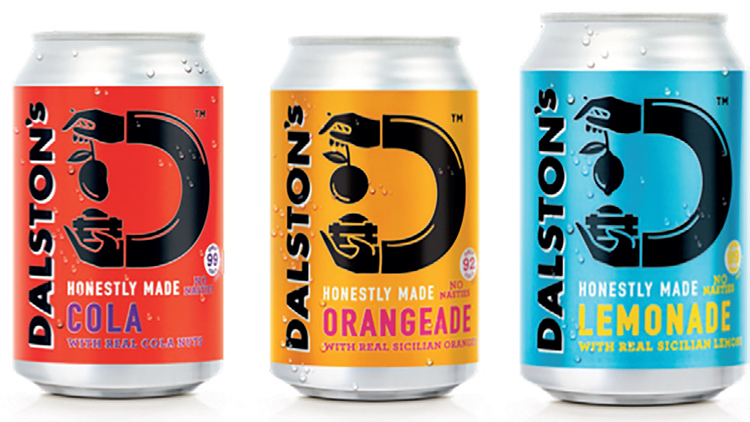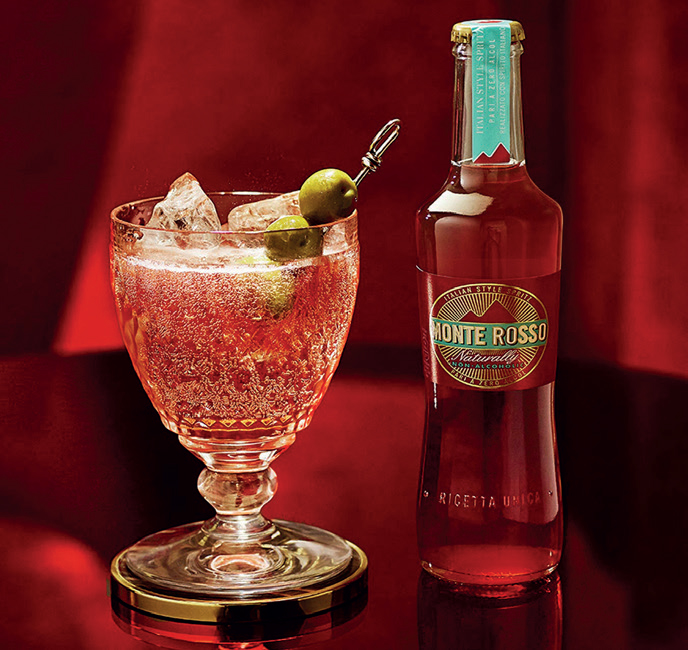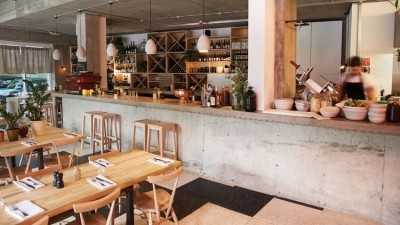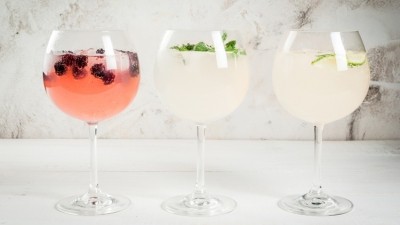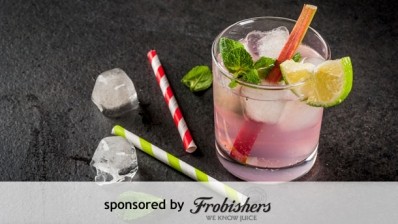Softly does it: how restaurants are improving their soft drinks
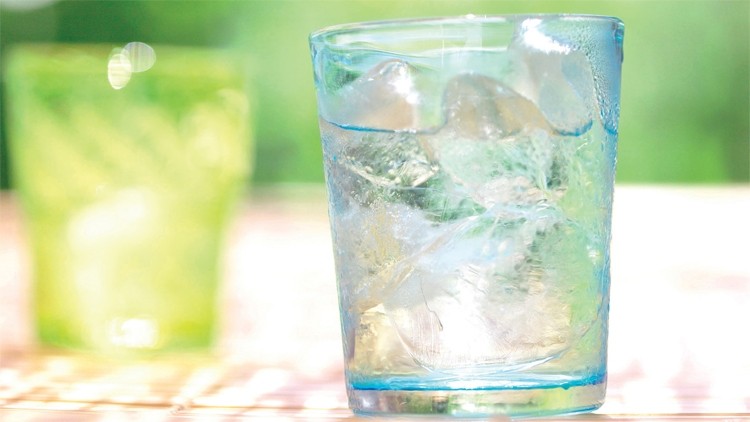
As a young boy, Rory McCoy, co-owner of Hackney restaurant Rawduck, was given regular tots of mouth-puckering apple cider vinegar by his mum to help him grow up big and strong. He didn’t know it at the time, but gulping down the home remedy, which is thought to combat everything from sore throats to heart disease, would actually end up as research for the soft drinks section of Rawduck’s menu.
The restaurant has built a cult following for so-called drinking vinegars made with organic apple cider vinegar, which has been rediscovered as a new wonder ingredient by the clean-eating generation.
“I’d drunk it from an early age and later on seen it on menus in the US and Japan so it was something we started playing around with,” explains McCoy. “It really took off and has become an important part of what we do.”
The drinks are made with muddled sugar and fruit, which is mixed with the vinegar and fermented for up to two weeks. It’s then served with ice and sparkling water at £4 to £4.50 a pop, representing a sweet 70% margin.
Last month, golden raspberry and apricot variants were on the menu, which also features home-made kombucha, kefir water and ginger and turmeric shots. Their popularity is such that McCoy is opening a wine bar and all-day diner in Dalston, east London, that puts even greater emphasis on the home-made products. Little Duck – The Picklery will double as a workshop and store for retailing bottles and jars of the fermented creations.
Rawduck’s success is testament to the boom in grown-up soft drinks in restaurants. According to Britvic’s annual Soft Drinks Review, sales of premium products grew by 32% in value last year in licensed and foodservice businesses, as people cut back on alcohol.
“Gone are the days when your soft drinks offering could consist of a bog-standard orange juice, full-sugar cola and barely chilled lemonade,” says Britvic commercial director Russell Goldman. “Consumers today want an experience and they expect a good choice.”
Health is a big part of the trend, with sales of sugar-free drinks growing rapidly. Britvic’s report found that Coke Zero and Pepsi Max grew by 23% and 54%, respectively, in the out-of-home market last year. “Consumer interest in healthy living is continuing to have a huge impact,” says Goldman.
The trend will only become more pronounced with the introduction of the sugar tax next April, which will see 18p per litre levied on drinks with more than 5g of sugar per 100ml and 24p on those with more than 8g.
“The sugar tax is the biggest change we’re going to see in the industry,” says Dan Broughton, managing director at soft drinks producer Dalston’s. “Companies are either going to have to reformulate, increase prices or expand their portfolios.”
Dalston’s products, which include cola, ginger beer and orangeade, are all below 8g per 100ml, but not 5g, prompting the company to look at reformulating the entire range with ingredients such as chicory root fibre.
“The holy grail is less sugar and great taste,” says Broughton. “Our drinks are already 50% more expensive than the mainstream so price rises are not viable. And it would be too much for a small company like us to bring out a completely new range on top of what we do already. There are sweeteners like aspartame, but that’s just pushing the problem sideways.”
Organic and ethical soft drinks brand Karma Cola is banking on the natural sweetener stevia, made from the leaves of the stevia plant. The company has recently launched a sugar-free version of its flagship drink, which is being served in Jamie’s Italian and Barbecoa restaurants, and is available in cans as well as bottles.
Dalston’s also introduced cans earlier this year, which have been a hit with restaurants, says Broughton. “We’re following in the footsteps of craft beer so we’re finding that the casual-dining sector love cans, while more formal restaurants want bottles,” he says.
Crafty manoeuvres
The rise of craft spirits, particularly gin, is also having an influence on soft drinks and mixers with companies developing products that can be served on their own, but also as a premium mixer or in mocktails. Franklin & Sons’ wild strawberry and Scottish raspberry drink, for example, is used in Marco Pierre White Steakhouses to make a Bee’s Knees nonalcoholic cocktail by adding lemon and honey syrup.
Mixer and soft drinks company Fever-Tree has extended its range of drinks in both mixers and soft drinks. Its most recent products include an aromatic tonic made with South American angostura bark and botanicals such as cardamom, pimento berry and ginger and an improved version of its Madagascan cola. The tonic water has been created by Fever-Tree to enhance the more juniper-rich and robust gins on the market while the cola has been developed to boost the complex flavours of rums, whiskies and bourbons.
Drinks brand Double Dutch has also recently grown its mixer range with two new varieties – a ginger beer and a soda water.
The ginger beer combines three different types of ginger and has what is described as a spicy and peppery base and a light finish, according to the drinks maker, while the soda water is made with sodium bicarbonate and citric acid to create a balance between fizz and bitterness, it says.
WiseHead Productions, the incubator drinks company from Britvic, has also boosted its London Essence Co range of mixers and sodas. New to its adult soda range are rhubarb & cardamom and grapefruit & lemon verbena flavours, both of which are designed to be consumed straight over ice.
The company has also just made changes to its Thomas & Evans ‘zero proof’ drink, specially designed for occasions when people don’t want to drink alcohol but don’t want to go down the traditional sweet-soft-drink route. The drink, which is made with more than 20 ingredients, including silver birch charcoal-filtered green fruit juices and steam-distilled botanicals, including apple, elderflower, citrus peel and oak tincture is being rebranded as T&E with bottle sizes being reduced from 330ml to 275ml in response to requests from bartenders.
WiseHead has also created an alternative to the now ubiquitous Aperol Spritz that has all of the drink’s bitter flavours but none of the alcohol. Its Monte Rosso brand is made using 14 botanical bitters, many of which are found in Venetian amoros, that are mixed with cranberries and rowan berries and topped with soda water.
Food for thought
Drinks companies are developing products with food in mind. The Franklin’s range was created to match with food, says Justin Horsman, brand controller at parent company Global Brands.
“The drinks offer a tertiary food-style ingredient, from cracked black pepper, cinnamon and lemongrass to crushed juniper berries,” he says. “This results in each drink being able to complement a selection of meals.”
Juice flights, matched with tasting menus, are served by restaurants, including The Clove Club in London and Brighton’s Isaac At. MasterChef winner Steven Edwards is working on a juice flight to go with the six and eight-course menus at his new Brighton restaurant Etch.
Sommelier Sam Weatherill is experimenting with freshly squeezed fruit and vegetable juices, adding ingredients such as cold brew tea to increase tannin levels. “ Just because you’re not drinking [alcohol] doesn’t mean you shouldn’t have the full experience,” he says. “We always include a non-alcoholic drink, so it could be home-made lemonade with soya sauce and basil, which is delicious on its own, but also matches with our tomato and basil soup.”
Charlotte’s Bistro in west London also serves home-made lemonade, as well as changing seasonal drinks, such as strawberry soda with black pepper, cranberry and verjuice.
“We’ve been open three years and alcohol consumption has definitely dropped,” says head bartender Tom Byrne. “We have Fever-Tree drinks in the fridge, but we don’t put them on the menu. We want people to order the soft drinks we make ourselves because we take them just as seriously as our alcoholic ones. We’re in the business to make sure everyone has a good time.”
